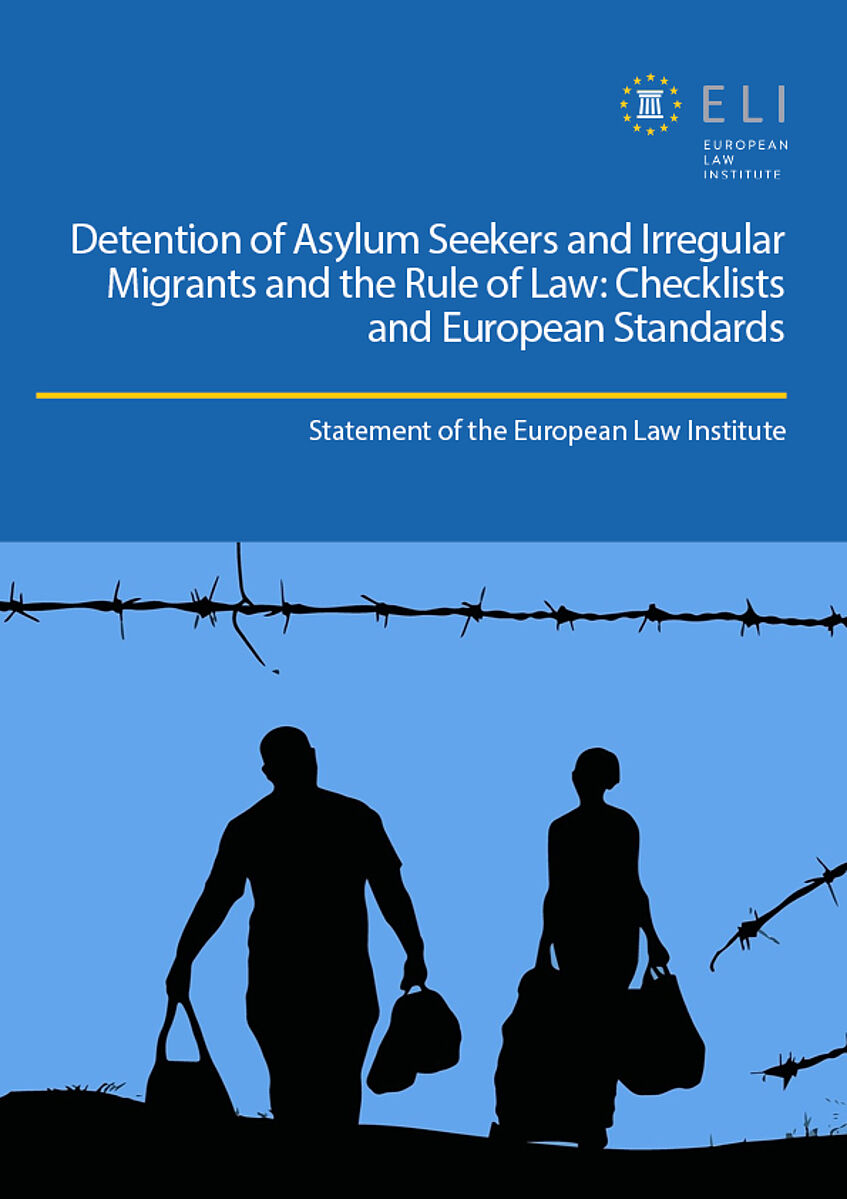ELI Statement on Detention of Asylum Seekers and Irregular Migrants and the Rule of Law: Checklists and European Standards
Quick Facts and Output
Project Type and Output: Statement
Procedure: Accelerated
Adopted: CD 2015/11
Project Period: November 2015–September 2017
Summary
The Project Team produced a comprehensive list of European standards for the judicial control or adjudication on detention of asylum seekers and irregular migrants with a view to enhancing the implementation of existing EU law in national practices and to facilitating more harmonised approaches in EU Member States.
Background
The rule of law has always been high on the EU legislator’s agenda, while specifically in the field of migration, the Commission adopted the European Agenda on Migration (COM(2015) 240 final) in May 2015. This agenda sets several policy tools for immediate actions in order to protect those in need. The sources of EU secondary law (Reception Conditions Directive 2013/33/EU (recast), Return Directive 2008/115/EC and Dublin III Regulation) in the same field provide the rules on detention of asylum seekers and third country nationals (TCN)
Both the European Court of Human Rights (ECtHR) and the Court of Justice of the European Union (CJEU) have developed extensive case law with regard to detention of TCN and asylum seekers. Numerous principles established therein and the norms offered by the EU legislation in place, may pose a challenge to the harmonised application of common standards in detention cases for national judges across EU Member States.
The ELI's project focused on identifying all due process standards and material law including conditions for detention, and on enhancing the implementation of existing EU law in this field.
Outline
The project was carried out in three stages. First the project team identified and compiled all due process standards and material law on detention from the relevant sources of EU law and case law of the ECtHR and the CJEU. The compilation includes special positions and safeguards for children and other vulnerable persons and eventual differences in due process standards between EU law (including case law of the CJEU) and case law of the ECtHR.
In the second phase, members of the project team identified challenges and problems that judges may face when applying the selected due process standards and material law including conditions on detention in conjunction with the relevant case law of the ECtHR. As a result of this analysis and at the end of the second stage, the project team developed a user-friendly check list with indications and recommendations on how to apply those standards in an integrated manner. The results of the two first stages were presented and discussed on various occasions, including the ELI Annual Conference 2016 in Ferrara (Italy).
During the third, last stage of the project, the final product was disseminated among judges of EU Member States dealing with detention cases and other relevant stakeholders.
Objectives
This project's aim is to contribute to an effective implementation of due process standards and material conditions for detention based on an integrated approach in respect of EU secondary law, case law of the CJEU and case-law of the ECtHR in judicial practices of Member States. The full text of the document constituting a comprehensive compilation of European standards for the judicial control or adjudication on detention of asylum seekers and irregular migrants is now available in here.
Project Reporter
- Boštjan Zalar
Project Team
- Samuel Boutruche Zarevac
- Marc Clément
- Mark Clough QC
- María-Teresa Gil-Bazo
- Sergo Mananashvili
- Pamela McCormick
- Ala Šabanovič
- Saša Sever
Advisory Committee
- Fabrizio Cafaggi
- David Conlan Smyth
- Alice Edwards
- Michael Fordham QC
- Johan Gernandt
- Roxanne Manson
- Allan Rosas
- Adriano Silvestri
Observers
- Killian O´Brien
- Valsamis Mitsilegas

